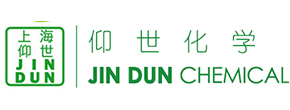The EU's new regulations regulate the development of the battery industry, and the industry ushers in new business opportunities
2023/7/17
On July 10, local time, the Council of the European Union passed a new regulation aimed at strengthening the management of batteries and waste batteries. The regulation will regulate the entire life cycle of batteries, from production to recycling and reuse, and ensure they are safe, sustainable and competitive.
It is reported that the European Council stated in a press release issued on the same day that the new regulations will apply to all batteries, including waste portable batteries, electric vehicle batteries, industrial batteries, etc., aiming to promote circular economy by regulating the entire life cycle of batteries . The new regulations therefore stipulate end-of-life requirements, including waste battery collection goals and obligations, material recycling goals, etc.
"For the first time we have circular economy legislation that covers the entire life cycle of products, which is good for the environment and the economy," said Achli Variati, MEP. "Our overall goal is to build a stronger of the EU battery recycling industry and a competitive industrial sector. These measures are crucial for Europe’s energy transition and strategic autonomy in the coming decades and could become a benchmark for the entire global traction battery market.”
According to Torre Seknis, head of the European Battery Alliance, at the 2023 World Power Battery Conference, the EU's demand for power batteries will reach 550GWh in 2025, and will rise to 1,000GWh in 2030. In terms of battery mineral raw materials, the EU's demand for lithium will increase 18 times by 2030, and the demand for cobalt will increase by 5 times; by 2050, the demand for lithium will increase by nearly 60 times, and the demand for cobalt will increase by 15 times.
It is understood that the new EU regulations divide products into automotive batteries, electric vehicle batteries, light vehicle batteries, industrial batteries, and portable batteries. Then to the recycling of decommissioned and scrapped batteries.
Nicholas Bramy, a battery expert at Germany Trade and Invest (GTAI), said the new regulations will boost the competitiveness of European industry, ensure the sustainability of new batteries and contribute to the green transition. In addition, this regulation means that Germany will usher in new business opportunities in the battery industry to a certain extent.
Under the regulation, producers will be responsible for collecting a certain percentage of used portable batteries (63% by the end of 2027 and 73% by the end of 2030). In addition, producers must also set specific collection targets for used batteries from light transport vehicles (51% by the end of 2028 and 61% by the end of 2031).
In addition, the regulation stipulates mandatory minimum recycling content levels for new industrial batteries, automotive storage batteries (SLI batteries) and electric vehicle batteries. The recovery rate reached the target of 50%.
According to expert analysis, these regulations are of great significance to the European battery industry and may completely change the way the EU and its largest economy and battery center, Germany, handle battery materials.
"The new regulations cover the entire battery life cycle and ensure that key raw materials are reused as much as possible," Bramy said. "Batteries sold in EU countries must comply with sustainable production practices and responsible recycling processes, ultimately supporting transition to low-emission transport."
Regarding the future development of the German battery industry, Bramy said, "This marks an important step towards the first real closed-loop industry in the battery industry. This regulation will consolidate the EU, especially Germany's role in the entire battery material value chain." Leading investment position. At Germany Trade & Invest we are already seeing strong interest from industry leaders, especially in the recycling industry, in investing in new production capacity in Germany.”
Since this year, the German government has continuously increased its financial support for new projects in the local battery industry. Recently, the German government announced that it will provide 160 million euros in funding for Bosch's hydrogen energy project. Funding for this project is mainly used to research stationary fuel cell systems for power generation and heating, that is, the application of hydrogen in batteries. Bosch said it will step up efforts to develop hydrogen fuel cells and is expected to become the world's first company to mass-produce this energy system in 2025. In addition, the "2022 China's Investment in Europe Report" recently released by Rhodium Consulting and Mercator China Research Institute shows that China's investment in the European electric vehicle battery industry will continue to rise in 2022, and battery investment has now become China's investment in Europe. mainstream.
The report shows that Germany is one of the main centers of Chinese battery investment in Europe. It is reported that the first overseas factory of Ningde Times in Thuringia, Germany just announced that it has officially entered the mass production stage in January this year. The company will invest a total of 1.8 billion euros in its German factory. In addition, in September 2022, Honeycomb Energy announced that it will build a second overseas factory for the European market in Brandenburg, Germany, mainly engaged in the production of battery cells.
JIN DUN CHEMICAL has built a special (meth) acrylic monomer manufacturing base in ZHEJIANG province. This makes sure the stable supply of HEMA, HPMA, HEA, HPA, GMA with high level quality. Our special acrylate monomers are widely used for thermosetting acrylic resins, crosslinkable emulsion polymers, acrylate anaerobic adhesive, two-component acrylate adhesive, solvent acrylate adhesive, emulsion acrylate adhesive, paper finishing agent and painting acrylic resins in adhesive.We have also developed the new and special (meth) acrylic monomers and derivatives. Such as the fluorinated acrylate monomers, It can be widely used in coating leveling agent, paints, inks, photosensitive resins, optical materials, fiber treatment, modifier for plastic or rubber field. We are aiming to be the top supplier in the field of special acrylate monomers, to share our rich experience with better quality products and professional service.

